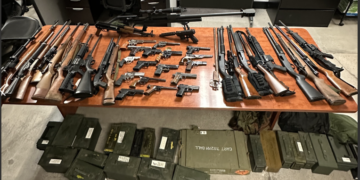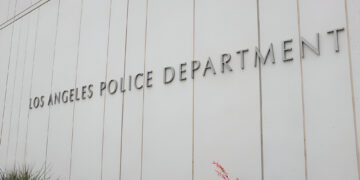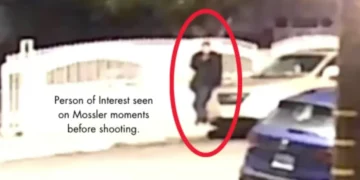LOS ANGELES, CA – Several new traffic-related laws will take effect across California starting January 1, 2025, affecting driver’s licenses, insurance coverage, auto burglary prosecutions, and parking regulations. The legislation, signed by Governor Gavin Newsom, aims to enhance road safety, employment fairness, and legal protections for victims of auto-related crimes.
Driver’s License
Senate Bill 1100 (SB 1100) introduces significant changes to employment requirements related to driver’s licenses, addressing concerns about discrimination against individuals who do not possess a valid license.
The law prohibits employers from requiring applicants to hold a driver’s license as a condition of employment unless certain criteria are met. Employers may only mandate a valid driver’s license if they can reasonably demonstrate that driving is a required job function for the position.
Additionally, employers must establish that using an alternative method of transportation would not provide a comparable travel time or cost-efficiency for the employer. The law ensures that applicants who cannot obtain a license due to legal status, disabilities, or personal circumstances are not disadvantaged in the hiring process unless driving duties are central to the job role.
By enforcing this provision, the law aims to increase job accessibility while maintaining reasonable standards for positions requiring driving.
Insurance Coverage
Senate Bill 1107 (SB 1107) raises minimum liability insurance requirements for vehicle owners and operators, marking the first update to these standards in decades.
Starting January 1, 2025, motorists must carry higher minimum coverage limits for liability insurance:
- $30,000 for bodily injury or death involving one person.
- $60,000 for bodily injury or death involving multiple persons.
- $15,000 for property damage resulting from a single accident.
The law also raises the required deposit for financial responsibility filings to $75,000, ensuring drivers who choose this alternative method meet higher financial standards.
The updated insurance mandates aim to provide better compensation for accident victims and reflect modern costs associated with medical care and property damage. Drivers are encouraged to review policies and update coverage before the law takes effect to avoid penalties and maintain compliance.
Locked Door Loophole
Senate Bill 905 (SB 905) addresses a longstanding legal gap in auto burglary laws, often referred to as the “locked door loophole.”
Under the previous law, prosecutors were required to prove that a vehicle’s doors were locked at the time of a burglary to secure a conviction for auto theft. This requirement complicated prosecutions and made it easier for suspects to avoid penalties when locks could not be verified.
The new law eliminates this requirement, allowing prosecutors to pursue burglary charges based on evidence of forced entry or damage to the vehicle. This update gives law enforcement more flexibility to handle auto theft cases, which have seen increases in several California cities.
Auto burglary can now be charged as either a misdemeanor or a felony, depending on the severity of the crime and the circumstances surrounding the incident. A felony conviction carries a sentence ranging from 16 months to three years in prison.
The law also strengthens protections for victims by closing a legal loophole that previously made prosecutions more difficult and less effective.
Parking
Assembly Bill 413 (AB 413) introduces new restrictions on parking near crosswalks, aimed at improving pedestrian safety and enhancing visibility at intersections.
The law makes it illegal to park within 20 feet of the approach side of any marked or unmarked crosswalk, even if the curb does not have red paint markings to indicate a no-parking zone.
This measure brings California in line with 40 other states that already enforce similar restrictions, addressing long-standing safety concerns for pedestrians at intersections. Before this law, California lacked statewide regulations requiring minimum parking distances from crosswalks.
In addition to parking restrictions, the law strengthens prosecution efforts against individuals involved in car burglaries. Suspects found possessing or reselling more than $950 worth of stolen property from vehicles can now be prosecuted, whether they committed the burglary themselves or were holding stolen goods for sale or distribution.
By introducing stricter parking regulations and addressing auto theft rings, the law seeks to create safer environments for drivers and pedestrians alike.
Looking Ahead
These new traffic laws represent a comprehensive effort to improve road safety, address discrimination in employment practices, and simplify prosecution processes related to auto thefts and burglaries.
With higher insurance requirements, enhanced pedestrian protections, and expanded legal tools for prosecutors, the legislation reflects California’s commitment to modernizing laws and responding to challenges in urban areas.
Residents are encouraged to review their insurance policies, familiarize themselves with parking restrictions, and consult employment guidelines to ensure compliance with the new regulations taking effect in January 2025.

























